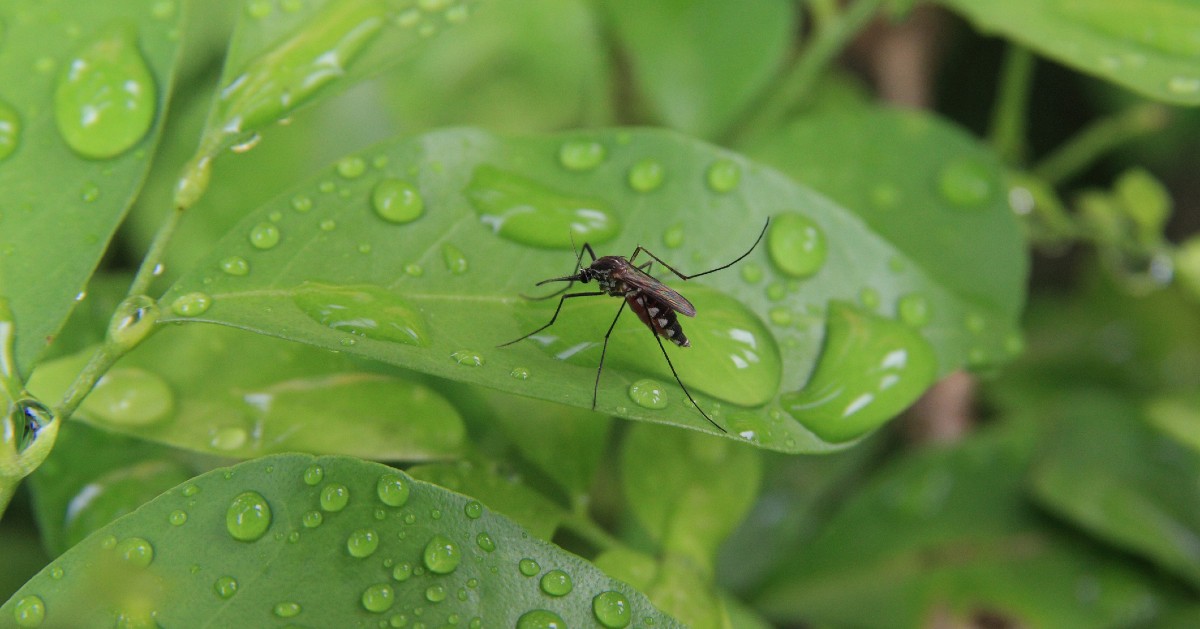If you’ve been wondering, “are there mosquitoes in California,” you should know that this sunny state is no exception from the rest. Mosquitoes are alive and well in CA and pose health risks to residents and visitors alike.
About Mosquitoes in California
There are 53 established species of mosquitoes in California. The most common of these kinds are the following eight, which account for 99% of complaints from the public:
- Salt Marsh Mosquito
- Woodland Pond Mosquito
- Tree Hole Mosquito
- House Mosquito
- Encephalitis Mosquito
- Winter March Mosquito
Luckily for us, most of the commonly used names for mosquitoes in California also give us an idea of where they reside and where we can find them.
The salt march mosquito, for example, is found most often in tidal salt marsh areas during the summertime. They produce very high numbers in these areas and will fly moderate distances. They are known to be highly aggressive.
Woodland pond mosquitoes lay their eggs on mud and organic material along the edges of receding water. They live in woodland depressions that fill with water and become very aggressive and prevalent during early spring.
Tree hole mosquitoes in California breed in tree holes such as depressions or rot cavities that hold water. These mosquitoes also do well in similar artificial sources like tires, fish ponds, or buckets filled with water. They show up in about March and continue as aggressive daytime biters throughout the early summer.
House mosquitoes tend to be an urban issue and breed in all kinds of water sources from storm drains and catch basins to septic tanks and flooded basements. They are aggressive in their entry to homes and mostly bite at night. House mosquitoes are also known for carrying the West Nile virus.
Encephalitis mosquitoes prefer freshwater sources, but will also breed around vacant swimming pools and rain pools. This type of mosquito in California is high-risk for mosquito-borne disease transmission and can spread the West Nile virus and encephalitis. However, they mainly feed on birds and are only moderately aggressive towards people.
The winter marsh mosquito is more active in the fall rather than the summer and lays its eggs on the surface of ponds filled with fresh rain. They can produce several generations in one season and bite most frequently at dusk from fall to spring. They are large, noticeable, and highly active. Finally, the fish pond mosquito thrives in freshwater sources like ponds, creeks, and containers filled with rainwater. Even small sources of water make for excellent breeding grounds and large numbers. As a moderately aggressive insect, it bites during the evening or in cooler, shady areas. Its large size makes it highly recognizable.
Prevention and Protection
Mosquitoes consume blood to survive, yet their bite causes irritation and swelling on human skin. While the majority of mosquito bites simply cause an itchy sensation that lasts for one to a few days, they can also transmit extremely harmful and sometimes deadly diseases like Malaria, West Nile Virus, and yellow fever, to name a few.
Personal preventative methods and protection can help keep mosquitoes away, even at their peak seasons. Mosquitoes in California can be deterred by screens, netting, and mosquito repellents. Additionally, you can prevent bites by covering your skin while outside, avoiding wooded, grassy, and damp areas, and wearing darker-colored clothing.
Keep mosquitoes out of your home by inspecting windows, screens, and doors for tears or cracks. You can also treat the perimeter of your home or your lawn with mosquito repellents.
These methods can help keep you healthy and safe, but we always recommend turning to expert pest control professionals to ensure a complete and successful job.
Expert Mosquito Control
We call them experts for a reason; contact AAI today for the best in mosquito control.
Are There Mosquitoes in California Professional Pest Control Services in Tracy CA?
Serving Northern California

